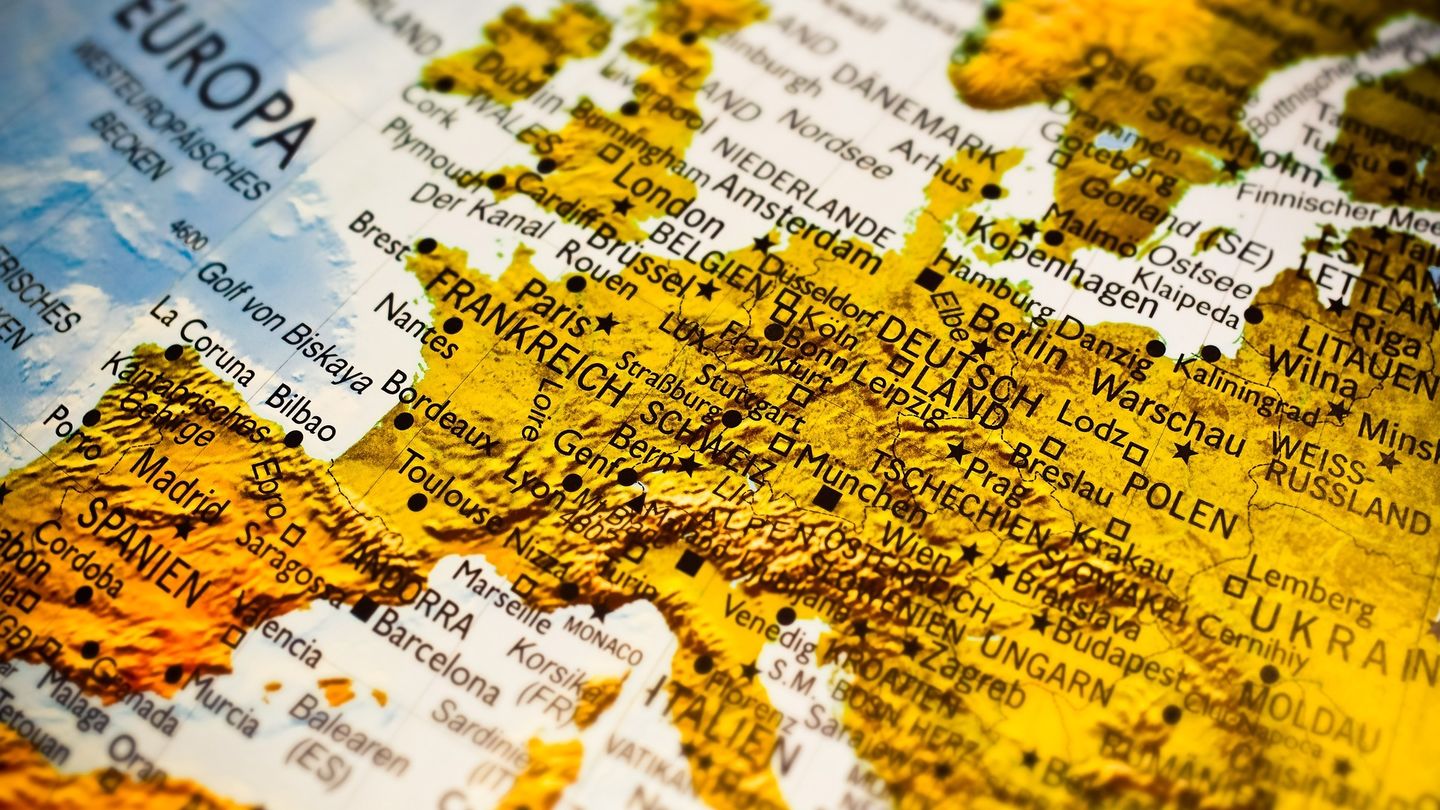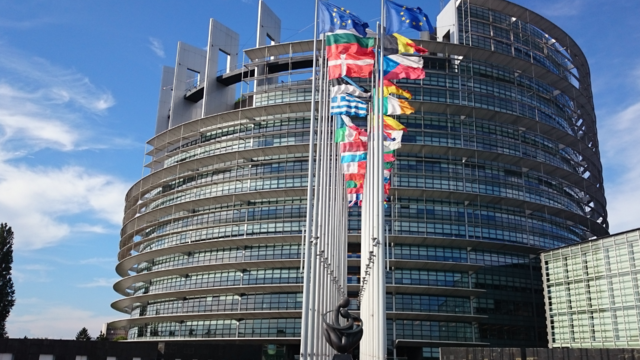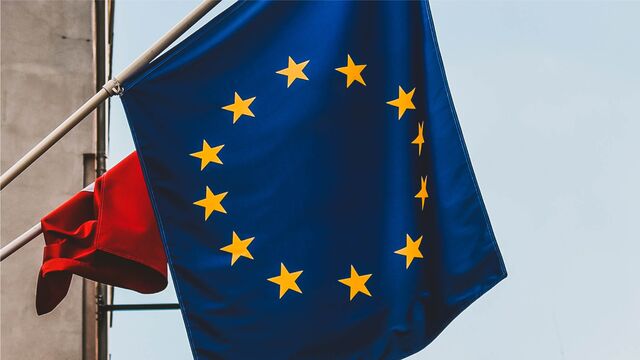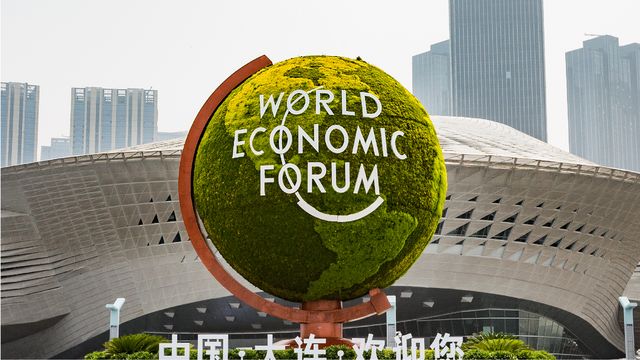Crisis: New Threats and Opportunities within and beyond the EU

paper
In early July, the second conference of the Czech-French Europe Dialogue series took place in Prague. Six Czech and French economists and political scientists met to discuss the impacts of and the responses to the ongoing global financial and economic crisis.
Summary
In early July, the second conference of the Czech-French Europe Dialogue series took place in Prague. Six Czech and French economists and political scientists met to discuss the impacts of and the responses to the ongoing global financial and economic crisis. The participants highlighted the following points:
- Despite the global effects of the crisis, governments’ responses originated at the national level and did not lead to institutional changes at the international level. While the financial sector requires selective regulation, there is not enough will to strengthen the governance of the global economy.
- The crisis has affected EU member states in different ways. Moreover, its perception and the measures undertaken vary among nations according to their historical experience. The neoliberal vogue in the mainstream discourse has ended and the continental economic models were rehabilitated. The crisis gives us an opportunity to find a European consensus on the balance between the importance of market incentives and institutional regulation.
- National measures to mitigate the adverse social impacts of the crisis have suspended the Stability and Growth Pact and substantially increased the current public debt. Its repayment may take as long as two decades and it presents a major challenge for the social and intergenerational solidarity in the EU.
- The declining dominance of the United States in the global economy and the new democratic administration present an opportunity to foster transatlantic relations. The EU should unite its voice to promoting necessary reforms of the international monetary system and finding new ways of financing the economic growth in order to overcome the growing imbalance between developed and emerging markets.
Introduction
The first conference of the newly established Czech-French Europe Dialogue series was titled The French and Czech Presidencies of the EU: Political Priorities, Institutional and International Issues, and it took place in Paris in January 2009. The second event, co-organized by the Institute of International Relations, Prague and CERI–Sciences Po, Paris, took place on 1st July 2009 in Prague. The following economists and political scientists met to tackle the issue of the current global financial and economic crisis:
- Christian Lequesne, Director, CERI–Sciences Po
- Michal Mejstřík, Director, Institute of Economic Studies, Charles University, Prague
- Jana Matesová, former Senior Advisor to Executive Director of the World Bank
- Jacques Rupnik, Senior Research Fellow, CERI–Sciences Po
- Tomáš Sedláček, Chief Macroeconomic Strategist, ČSOB Bank, Prague
- Jérôme Sgard, Senior Research Fellow, CERI–Sciences Po
The most important crisis since the Great Depression resulted in a loss in consumption of trillions of euros worldwide. A local bubble on the US housing market has quickly spread all over the world, leaving local economies, polities and societies affected in various ways in both the North and South. There may well be signs of a slow recovery, but unemployment continues to grow on both sides of the Atlantic.
Some sustain that the crisis is just a price that we must pay for the strong growth of the world economy during a part of the first decade of the 21st century. With a little adjustment, the global business would go on as usual. In contrast to that, others have questioned the very governance of the world finance and economy. They claim it is high time for the whole paradigm of globalization to change.
Rather than settling the ideological debate, the conference returned to the causes of the crises, scrutinized the measures undertaken by the governments and international organizations, and identified the main challenges and opportunities for the future. From economic and political standpoints the speakers concentrated on the European Union and its member states, and on the United States of America, where the crisis originated.
The apparent and deeper roots of the crisis
The global financial and economic crisis occurred after a period of relatively strong growth, especially in the emerging markets. For example, the Czech economy rose by almost 50% since 2000. As seen from the United States, the crisis is steeper than in 1973 and 2000, making it similar to that of 1929. Even though the existing pattern of economic development is unsustainable, it should be judged with prudence for its undeniable benefits in the past.
The trigger of the crisis has been rightly identified in the US financial sector. Insatiable financial markets were under-regulated, and “toxic assets” appeared and resulted in the mortgage crisis. Both Democratic and Republican governments are to blame for making liquidity too abundant and guaranteeing bad housing loans as well.
However, the crisis had deeper roots in the long-term external, fiscal and internal imbalances of the US economy. Savings from the emerging economies, especially those of China and India, finance American consumption and public deficits. The international monetary system should be reformed before the US dollar heavily depreciates, but the emerging countries are under-represented in the international financial institutions.
The need to reform the international financial system, currently based on a mixture of floating and fixed exchange rates, is an important lesson from the Great Depression. The failure to take a collective action led to further economic downturn and World War II. At least, excessive nationalism and protectionism comparable to that of the 1930s seem to be discarded from the international trade.
So far, the response to the global crisis took place at the national level or at informal fora such as G8 or G20. International organizations, including the International Monetary Fund, provide analysis and orient discussions, but they are virtually absent in shaping policies. Even the informal cooperation between central banks has been smooth and largely sufficient. While different countries have chosen different mixes of socializing the costs among taxpayers and regulating or closing specific financial markets, there has been no attempt at building or strengthening institutions at the global level.
Adjustments in the financial sector, but “business as usual” in the real economy
While some space for moderate adjustments in the financial sector is already open, there are no signs of a changing economic paradigm. The mainstream economists sustain that the crisis was not a failure of the principles but of the implementation of the Washington Consensus: neither private property nor market mechanisms failed. As an exception to that, the imbalance between the rights of owners and managers should be narrowed in order to reduce the “short-termism” of the latter. All the challenges of the Lisbon Strategy to improve the flexibility on the labour market and promote research and development remain valid.
Nevertheless, the crisis offers an opportunity to rethink the economic growth model. The pre-crisis model was based too much on leverage and liquidity expansion, and it did not offer enough incentives for the rise in productivity. Returns in traditional lending were too low and the coordination of risk management failed. Indeed, once the confidence in markets vanished, the crisis affected even those countries that were quite strict in regulating their financial markets.
According to the mainstream economists, the failure of the economic science to predict the crisis does not require any substantial revision of theories and methods. Nonetheless, the crisis may signify a return to the Keynesian principle of restraining the “animal spirit” of capitalism to protect its creative forces from self-destruction – without questioning the capitalist system as such. The economic agents remain motivated by profits, and frequent calls on business ethics by the policy-makers without effectively regulating the economy are futile.
From diversity and controversy among the EU member states...
The predominance of national reactions to the crises concerns not only countries on different continents, but also the common European market as a whole. The feeble leadership of the international organizations finds its correlate in the passivity of the Commission. Current responses of the European countries reflect the severity of the crisis as a result of deregulation policies in the recent past and, quite surprisingly, the long-run historical experience.
In countries like Belgium and Hungary, the crisis originated in the domestic financial sector, characterized by toxic assets, excess leverage and high debts in foreign currency. In other countries, including France and the Czech Republic, financial regulation was more conservative and the economic recession was mostly imported from abroad.
The neoliberal belief in self-regulating markets has dominated in the mainstream discourse, and it has especially influenced the United Kingdom in the 1980s and some of the post-communist countries in the 1990s. However, it never really prevailed in Europe, which has a rich welfare state tradition. Public sectors are important not only in Germany or Nordic countries, but also in Britain. The seemingly neoliberal new EU member states have de facto conserved their social protection webs from the communist period.
Perceptions of the crisis remain of major importance. For example, in autumn 2008, the Czech politicians were denying the gravity of the crisis while it was the most important preoccupation of the European citizens. The upcoming Czech EU presidency was promoting the neoliberal “Europe without barriers” programme and it was unable to deliver a relevant message on the crisis. The intensity of the media coverage in France and Britain, whose large financial sector almost collapsed, is substantial as well.
The discords on the importance of the EU in mitigating the impacts of the crisis reflect these differences in perception. Countries such as Poland considered it a conjectural crisis while others have considered it as a structural one. Britain has substantially intervened already in the beginning of 2008 when it nationalized the Northern Rock, Germany was quite reluctant to intervene, and France remained somewhere in between these two positions despite the former neoliberal statements by President Sarkozy. This diversity is not a new phenomenon since the previous attempts at reforming EU treaties received criticism for being too neoliberal or too socialist as well.
However, the German and Czech mistrust in massive state interventions under both totalitarian regimes (as well as frequent references to the New Deal in the United States) shows that diverse national historical experiences still play an important role in the 21st century.
...to the European unity and consensus
Even though Europe has never fully practiced neoliberalism, the crisis has eventually delegitimized its discourse on deregulation and marketization of social services. The crisis seems to mark the return to a more pragmatic approach where the preference of the market or state can be considered case by case. Compared to the United States, the automatic stabilizers and social cushions built into the European welfare states have proven to be efficient in mitigating the social impacts of the crisis. Especially the Nordic “flexicurity” model seems to offer an optimal balance of labour market flexibility with social security.
Some signs of the new European unity remain ambiguous. The European social democratic parties missed the opportunity to capitalize on the renewed consensus and lost the June elections to the European Parliament. The dividing lines between more or less damaged European countries did not copy the distinct borders between the EU-15 and the new member states. The crisis may have erased the remnants of the Iron Curtain, but the pre-accession solidarity among the Central European and Baltic countries has vanished.
While the reactions to the crisis were mainly national, a recent Eurobarometer survey suggests that the majority of Europeans would prefer more coordination at the EU level and a multilateral response that would include the United States. This gives more legitimacy to a stronger EU leadership and an opportunity to strengthen the transatlantic relations. As already suggested, revolutions cannot be expected.
Nevertheless, this year will be crucial for prospecting reforms of the world financial architecture. Despite the diversity and idiosyncrasies of the EU member states, the reform of the international monetary system is in the interest of the whole Union, and it cannot be promoted separately by its member states. Most of the recommendations on the regulation of the financial sector, adopted at the G20 London summit in April, are not being implemented. If this is the case, new financial crisis are likely to occur and it is all the more important for the EU to adopt a joint approach for the forthcoming Pittsburgh summit. Otherwise, the EU should generally privilege those multilateral fora where it is represented as a whole to the ‘G’ formats where it is fragmented into nation states.
Moreover, the costs of the crisis will be durable. The Growth and Stability Pact had already shifted the “normality” of public deficits to 3% and the Maastricht criteria are now considered as dead. Many European countries are already heavily indebted and the repayment of newly created debts alone may take as long as one or two decades. With the ageing populations, the need for environmental adaptation, and insufficient investments in research and development, fiscal stability and social solidarity in Europe are in danger. Coordination at the EU level can help us to avoid falling into the debt trap.
EU and USA: converging or diverging paths?
In spite of the historical relation between the United States and neoliberalism, the crisis originated on the housing market, where both the Democratic and the Republican administration intervened against the neoliberal principles. Paradoxically, even if the US and the UK class among the countries most hit by the crisis, they appeared as the most interventionist countries by nationalizing large private companies. These massive state interferences do not, however, put in question their overall free-market orientation.
The victory of Barack Obama has put an end to another long term cycle in the US internal politics, but the crisis does not seem to question the American social model. Even if taxation becomes more progressive, it will remain lower than in Europe. It is only when private expenses in health care, education and social security are added that the levels of taxation are comparable on both sides of the Atlantic. Labour productivity in the EU will probably remain lower because the Europeans prefer leisure to work are not willing to reduce their holidays.
Even though the United States will recover earlier than most EU countries, the crisis has further undermined the US hegemony and shifted the world towards global multipolarity. The emerging markets, especially those in Asia, are much less affected by the crisis, which reduces the weight of the US and the EU in the global economy. After the failures of the American unilateralism, the time has come for the EU to strengthen the transatlantic relations.
Recommendations
The participants have identified several threats and opportunities for the European Union which are related to the ongoing financial and economic crisis:
- Since the economic model which had led to the crisis has brought almost a decade of strong growth, prudence is recommended in questioning its foundations.
- State interventions that lead to bad loans and moral hazard should be replaced by incentives for responsible economic players.
- Calls for the ethical behaviour of economic agents in the markets are inefficient unless they are translated into regulation by policy-makers.
- Not only should the financial market be regulated, but the international monetary system should be reformed in order to overcome long-term imbalance in the global economy.
- The way of economic development based on excessive leverage should be reconsidered.
- The EU should unite to have a strong voice in shaping the world financial system to its own benefit and to the benefit of all.
- In order to avoid new financial crisis, the recommendations adopted at the London summit should be implemented and elaborated by the forthcoming G20 summit in September.
- The EU should profit from the challenged position of the United States and the openness of the new American administration to strengthening transatlantic relations.
- After the partial delegitimization of neoliberalism, the EU should find a new consensus on the optimal balance between market incentives and institutional regulation.
- Special attention should be paid to the burgeoning public debts of the EU member states because their repayment will put pressure on social and inter-generational solidarity.
Acknowledgments
The author would like to thank Petr Drulák, Michal Mejstřík and Jacques Rupnik for their comments on an earlier draft of the policy paper, and Daniel Schneider for the minutes from the first conference panel.







